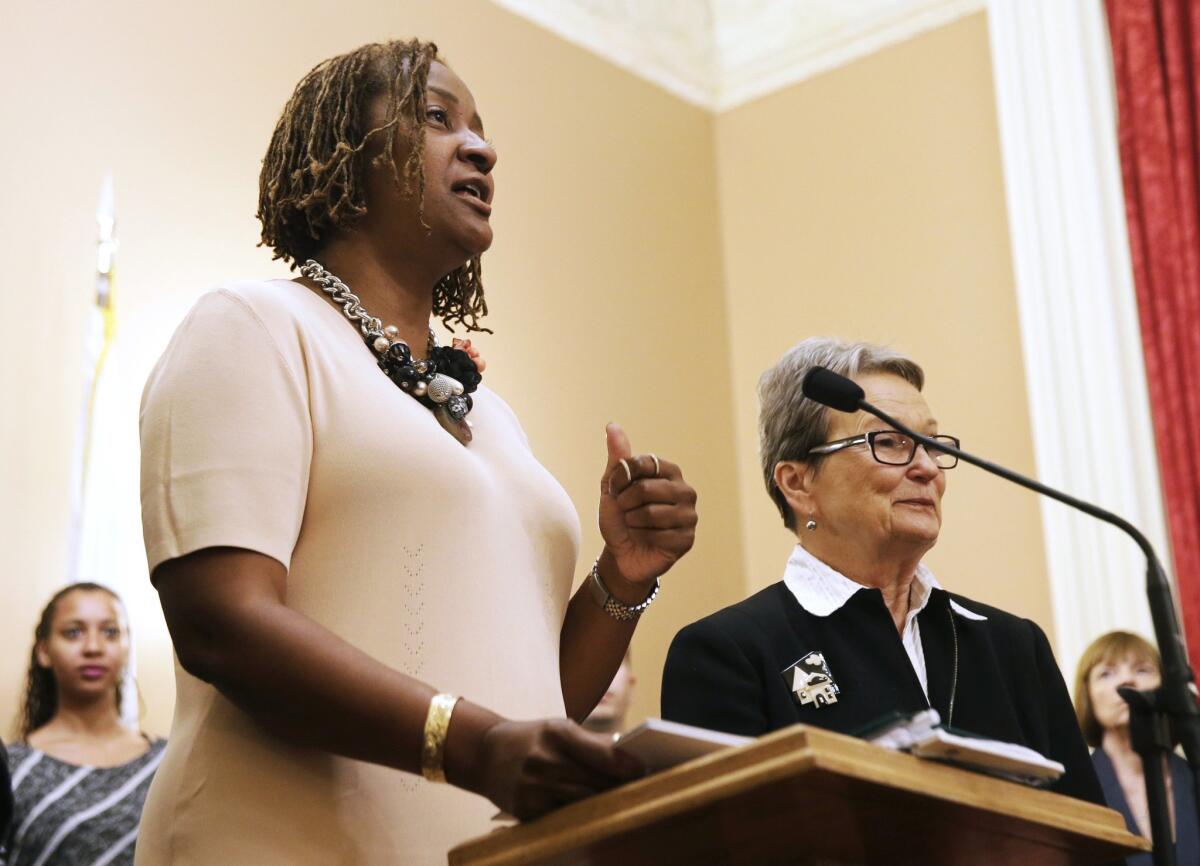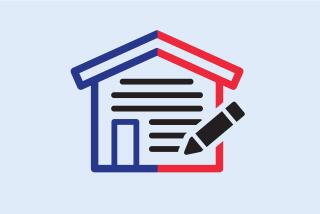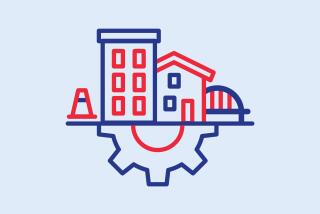Lawmakers push to scrap Prop. 13 tax limits for factories and business

State Sens.
Saying a major “loophole” allows some business to unfairly avoid paying billions of dollars in taxes, two Democratic state senators on Wednesday filed a proposed constitutional amendment to revise Proposition 13, the landmark property tax initiative approved by California voters in 1978.
The so-called split-roll proposal would require the regular reassessment of commercial and industrial properties, including factories, office buildings and other business property, to market value, while keeping current tax limits in place for residences and agricultural property.
Sens. Loni Hancock (D-Berkeley) and Holly Mitchell (D-Los Angeles), authors of the measure, said the change, if approved by voters, could raise $9 billion in additional revenue for the state and local governments.
That money could be used for many critical needs, including the repair of California’s deteriorating roads, and could provide more money for schools and child care, they said.
“We have large corporations and wealthy commercial property investors that have used loopholes in the law to avoid paying their fair share,’’ Mitchell said at Capitol news conference. “We have large, multibillion-dollar corporations that actually have a competitive advantage over smaller start-ups, simply based on when a property was purchased.’’
Hancock said that when California voters passed Proposition 13 in 1978, about half of the property taxes collected came from homeowners and half came from commercial properties. Today, homeowners pay 72%, she said.
If approved by the Legislature, the measure would be placed on the ballot in November 2016. To pass the Legislature, however, the proposal would require a two-thirds vote, which means that it would need support from a few Republicans as well as support from moderate, pro-business Democrats.
“We know it’s a high hurdle to get to two-thirds,” Hancock said.
The California Taxpayers Assn. and California Business Roundtable already have announced their opposition, saying the measure would have a devastating effect on businesses.
“We think it’s a great idea if your goal is to put hundreds of thousands of people out of work,’’ said David Kline, spokesman for the taxpayers group. “It’s exactly the wrong thing to do when the state’s economy is recovering and when there is already more general revenue.”
The effort to modify Proposition 13 is backed by the Make it Fair campaign, a coalition of unions and activists that is organizing support in local communities. The head of the coalition, Anthony Thigpenn of California Calls, a group that advocates for low-income families, said supporters would launch a separate campaign to place the measure on the ballot if the measure fails in the Legislature.
A recent poll from the Public Policy Institute of California found that 50% of likely voters supported the idea of the split roll, down from 60% in January 2012.
Proposition 13 limits annual property taxes to 1% of the assessed property value, and prohibits counties from increasing assessed values by more than 2% a year. Property can be reassessed after a change in ownership or new construction.
Under a companion measure approved by voters in November 1978, Proposition 8, assessed property values can be temporarily reduced to reflect declines in market value.
More to Read
Sign up for Essential California
The most important California stories and recommendations in your inbox every morning.
You may occasionally receive promotional content from the Los Angeles Times.











